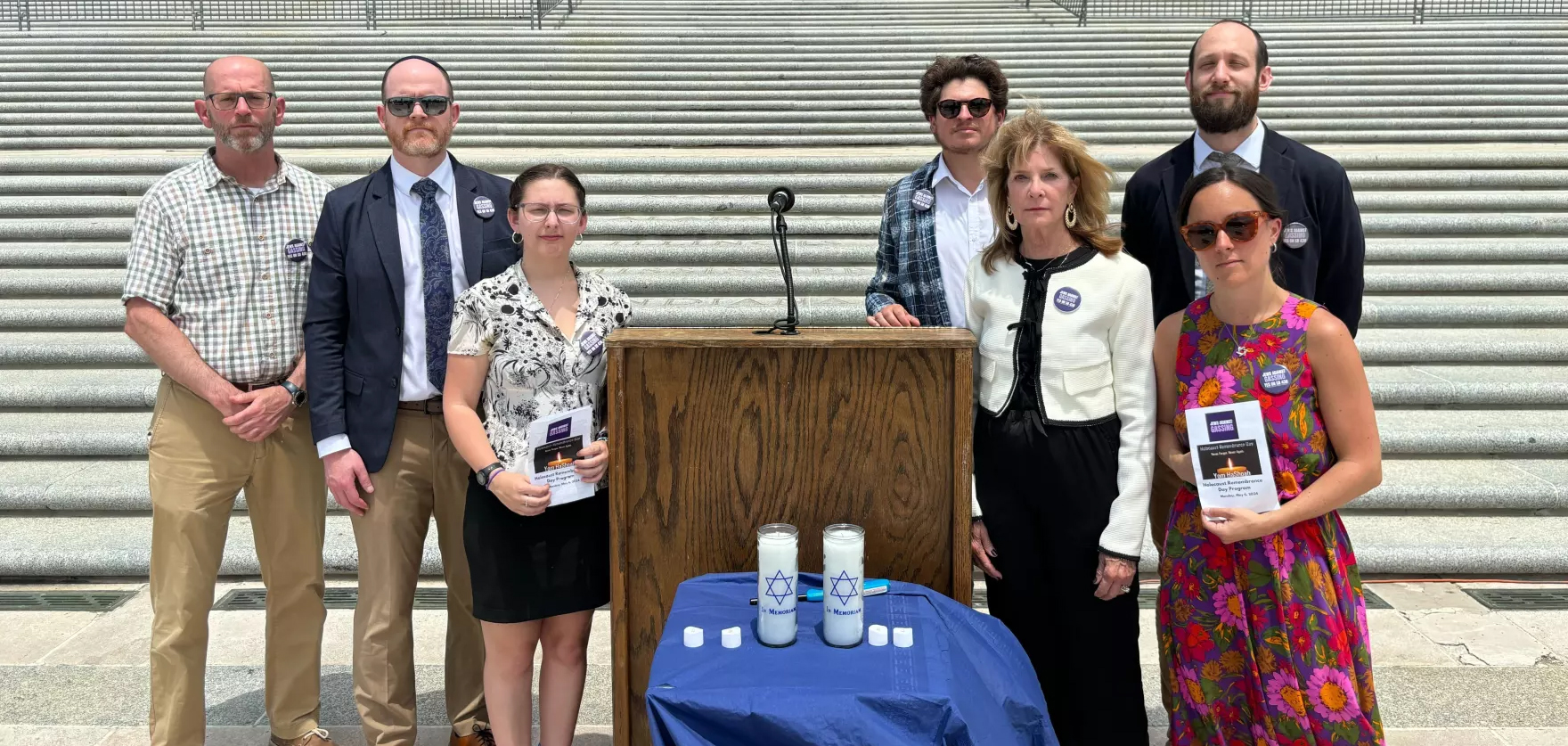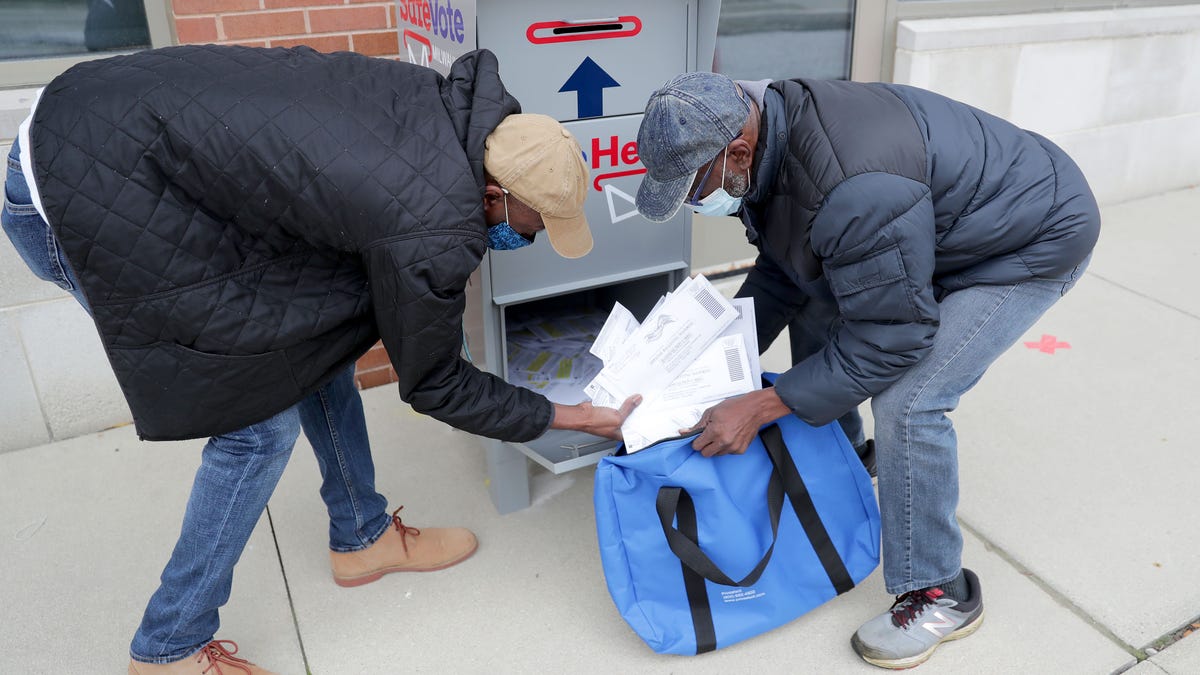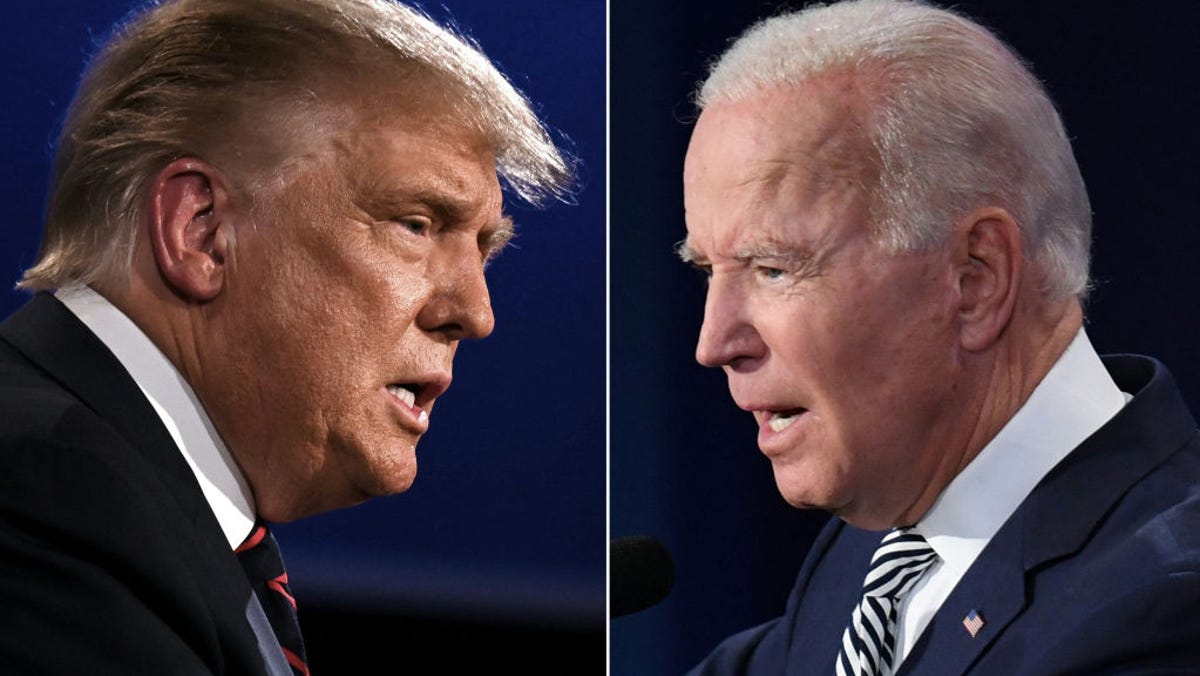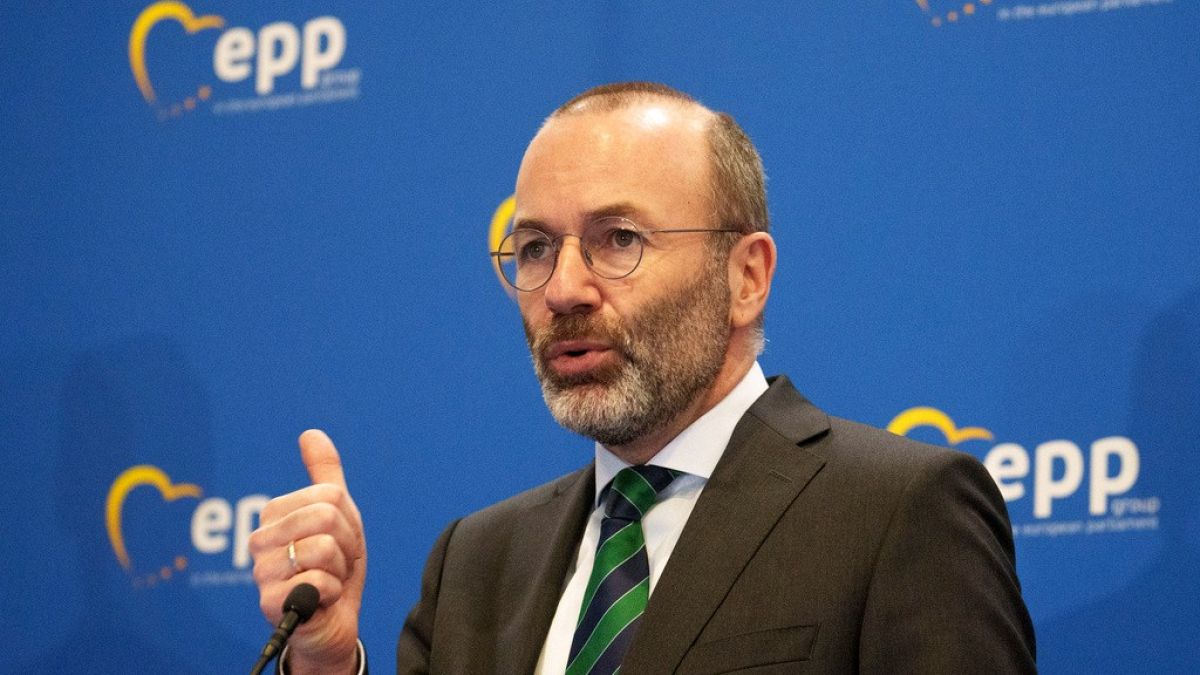Louisiana
Lies, half-truths, misinformation and bipartisan blunders from Louisiana politics in 2023 – Louisiana Illuminator

Louisiana politics featured a number of lies, half-truths, misinformation and blunders during 2023.
Some of last year’s questionable claims were continuations of deeply entrenched misinformation, lies and conspiracy theories that took root within far-right political circles nationwide when former President Donald Trump was in office, while others were unique to issues in our state last year and originated from the Louisiana Democratic Party.
The following list is not exhaustive but includes some of the more notable incidents, statements, actions and inactions that grabbed headlines in 2023.
Democratic delusions
One of the biggest headscratchers of last year was Louisiana Democratic Party chair Katie Bernhardt’s decision in January to air a television commercial statewide that seemed to position her as a potential candidate for governor, though without saying so explicitly.
Bernhardt told the Illuminator the motivation behind the TV ad was to draw attention to Democrats in general — and not to her own potential campaign.
Louisiana Democratic Party chair under fire for endorsement moves
“Rarely do we have an opportunity to have media backing,” Bernhardt said. “This is an opportunity to get people talking as far as candidates are concerned.”
What might have been a toe in the water to test Bernhardt’s electability ended up as an anchor around the party’s leg that many Democrats believe sank their chances of fielding a competitive candidate against eventual winner Jeff Landry.
Shortly after the ad aired, state Rep. C. Travis Johnson, D-Vidalia, stepped down as first vice chairman of the Louisiana Democratic Party because he had lost faith in Bernhardt.
“Because of dysfunction, lack of trust, consistent turmoil, and the possibility of me becoming chair, I resign effective immediately,” Johnson said in a statement.
Mugshot misstatement
State Rep. Bryan Fontenot, R-Thibodaux, sponsored a bill last year that would have effectively repealed most of a law that took effect in 2022. That law generally prohibits law enforcement from publishing or publicly releasing booking photos of people accused — but not yet convicted — of most non-violent offenses, though it allows law enforcement to still publish mugshots if they believe the suspect poses a threat to public safety.
During debate in a Senate Judiciary C Committee hearing in May, Fontenot falsely claimed the existing law prevents the public from being made aware of child molesters in their neighborhoods. When Sen. Gary Carter, D-New Orleans, asked Fontenot a series of questions, Fontenot became agitated and said the current law prevents parents from being able to see “who raped their child.”
Carter pointed out the inaccuracy of those claims, explaining how the law already contains exceptions for violent offenses and fugitives.
Fontenot’s bill underwent several amendments before a much milder version became law and left intact most of the 2022 law that prevents the release of mugshots of nonviolent suspects.
Undermining elections
The so-called “Big Lie” that Trump perpetuated about the 2020 presidential race outcome and myriad related falsehoods persist within the Republican Party and continue to plague state and local election officials nationwide.
Former Louisiana Secretary of State Kyle Ardoin, a Republican, gave a candid assessment of the situation in a farewell letter in April, explaining his decision to not seek reelection and calling out the outlandish conspiracy theories.
“I hope that Louisianans of all political persuasions will stand against the pervasive lies that have eroded trust in our elections by using conspiracies so far-fetched that they belong in a work of fiction,” Ardoin said. “The vast majority of Louisiana’s voters know that our elections are secure and accurate, and it is shameful and outright dangerous that a small minority of vocal individuals have chosen to denigrate the hard work of our election staff and spread unproven falsehoods.”
Despite Ardoin’s stance, new Secretary of State Nancy Landry, his former second-in-command, still claimed there were “very troubling allegations” of voting irregularities in swing states.
Likewise, loyal Trump supporter Gov. Jeff Landry has dodged questions on whether he believes Trump’s lies or thinks the former president interfered with the 2020 election.
Juvenile jumble
Gov. John Bel Edwards’ strategy for handling the state’s most troublesome incarcerated juveniles arguably created just as many problems as it sought to solve.
The administration sought to house them temporarily in a revamped facility at Louisiana State Penitentiary in Angola that formerly housed death row inmates. That move led to a lawsuit challenging the constitutionality of conditions, with lawyers for some teens claiming they were kept in isolation for extended periods and not provided required rehabilitative services.
Edwards preempted federal court action by relocating the youth to a facility in Jackson Parish, but there has been no indication from new Gov. Jeff Landry that teens couldn’t be sent back to Angola. It won’t happen for the time being because the same death row building is now temporarily housing women who had been incarcerated at the old Jetson Center for Youth in Baker.
They had to be moved from Jetson to hold three teen girls who were convicted as adults in the fatal carjacking of a 73-year-old New Orleans grandmother.
Who drew the maps?
This mystery still persists. During the Louisiana Legislature’s 2022 redistricting session, a handful of Republican lawmakers quietly hired an out-of-state law firm and outside consultants to help them draw political maps that ultimately became the subject of Voting Rights Act lawsuits over racial gerrymandering.
In early 2022, the lawmakers disclosed the name of one of the law firms but refused to answer questions about the other consultants who performed the work. More than a year later, it appeared Louisiana Republican Party chairman Louis Gurvich let slip the name of one of the consultants during the Republican State Central Committee Meeting in July.
Gurvich told his colleagues that Baton Rouge pollster John Couvillon of JMC Analytics “largely did the legislative redistricting” that took place in 2022. But in a written statement a couple of hours after Gurvich’s comments, Couvillon denied that he took part in the work.
Book bans
U.S. Sen. John Kennedy, R-Louisiana, is one of several GOP senators who’ve thrown fuel on the fire of falsehoods in a far-right effort to ban certain books from public libraries, claiming they are unsuitable for children.
At a Senate Judiciary Committee hearing in September, Kennedy read excerpts from two of the most challenged books in the nation. One of them included a description of a sexual act. What Kennedy neglected to say was that neither of those books are shelved in the children’s section at libraries.
Some conservatives have gone so far as to accuse librarians of using sexually explicit literature to “groom” children and claim book bans aren’t bans at all because the books can be purchased elsewhere.
Parental rights
Louisiana legislators passed an anti-LGBTQ+ bill last year that would have allowed teachers and school employees to refuse to use a student’s chosen name or pronouns that differ from the ones given to them at birth unless a student’s parent provides written permission.
Republicans who supported the measure, including its sponsor, Rep. Raymond Crews, R-Bossier City, couched it as a parental rights bill because it would essentially make sure students couldn’t come out as transgender without their parents’ permission.
The bill would have only protected the rights of parents of a certain ideology because a major provision in the bill said even if parents do provide permission, a teacher could override those parental rights if they disagree with the parents on religious or moral grounds.
At the same time, the bill would not allow teachers who hold a different religious or moral position to overrule parents who oppose their child’s LGBTQ+ sexuality and preferred pronouns.
“This is a culture war bill designed to impose one group’s values over the rest,” Rep. Joe Marino, I-Gretna, said during debate on the House floor. “This is not a parents’ rights bill unless the parents believe the same thing Rep. Crews does.”
Gov. John Bel Edwards vetoed the bill.
Gender-affirming care
State lawmakers, with the help of a handful of Democrats, successfully overrode the governor’s veto of a bill that prohibits minors from receiving gender-affirming medical care. The law went into effect last week.
During debate on the bill, some supporters invoked medical misinformation about gender-affirming care, claiming doctors were mutilating children with dangerous surgeries or that puberty blocking drugs were irreversibly harming children.
Gender-affirming procedures, such as top surgery, which adds or removes breast tissue, or bottom surgery, which constructs a vagina or penis, are generally not recommended for minors, according to Dr. Kathryn Lowe, a pediatrician who represents the American Academy of Pediatrics Section on LGBT health and wellness.
In rare cases, an older minor may be given top surgery after extensive counseling, although there is no evidence such procedures are available in Louisiana.
Treatments are individualized to the patient. Some young patients will be prescribed fully reversible puberty blockers, giving the patient time to consider their options. Later, a patient may be given hormone treatments to help them go through puberty in a way that allows their body to change in ways that align with their gender identity. These treatments are partially reversible.
The American Academy of Pediatrics and other major medical associations endorse such treatments, which are supported by a large body of research.
Anti-vax efforts
Many of the outlandish claims that peppered coronavirus debate a few years ago have subsided, but last year lawmakers sought to prohibit K-12 public and private schools from requiring COVID-19 vaccinations as a condition of enrollment.
The Legislature approved the bill from Rep. Kathy Edmonston, R-Baton Rouge, who falsely testified that COVID-19 is not a vaccine-preventable disease and that there were no Food and Drug Administration-approved vaccine doses available in Louisiana at the time.
Gov. Edwards rejected the bill, noting in his veto message that “perpetuating mistrust in vaccines that are safe, effective, and essential to public health is reckless and extremely dangerous.”
Edmonston also got a bill passed that would have required the state to send parents information about exempting their children from vaccine requirements. The governor vetoed that proposal as well, although it came just a few votes shy of being overridden.
Technically, Louisiana students are required to be inoculated for polio, measles, mumps and other ailments that have been eradicated or contained through mass vaccinations, but families can obtain an exemption.
Higgins hype
Since he was first elected to office in 2017, Republican Congressman Clay Higgins of Port Barre has spewed numerous lies and disinformation on a wide manner of topics, ranging from the 2020 presidential election to gun violence statistics.
An unquestioning Trump supporter, Higgins has repeated far-fetched conspiracy theories so often that some Louisiana Democrats refer to him as “Conspiracy Clay.”
Higgins’ outlandish claims aren’t just contained to social media. In one example, during a Feb. 8, 2023, committee hearing, he falsely accused Twitter employees of rigging the 2020 presidential election and even claimed they would soon be arrested, according to a Washington Post article.
Most recently, at a Nov. 15 committee hearing, Higgins accused the FBI of having “ghost buses” full of informants impersonating Trump supporters during the Jan. 6 insurrection. His evidence included a photo from inside the Union Station parking garage of several buses, which he noted were painted “completely white” as if that were an unusual color for such vehicles.
The photo shows the buses actually weren’t completely white but were emblazoned with company names, logos and other lettering consistent with common charter buses that any number of groups could have used to travel to the Capitol that day.
Like many other Republicans on the day of the insurrection, Higgins publicly condemned the violence as he and his colleagues hid from the mob of Trump supporters who attacked police and called for the execution of Vice President Mike Pence and House Speaker Nancy Pelosi as they breached the Capitol.
“Violence and lawlessness are unacceptable. This must end now. This is not American,” Higgins tweeted on Jan. 6, 2021.
He later went on to defend the attackers after order was restored and now claims, without evidence, that federal authorities and “the left” orchestrated the revolt.
J6 was an FBI op… pic.twitter.com/hm8tGIvir8
— Rep. Clay Higgins (@RepClayHiggins) November 30, 2023
GET THE MORNING HEADLINES DELIVERED TO YOUR INBOX

Louisiana
Louisiana Jews form alliance to oppose gassing as means of execution – Baptist News Global

Louisiana’s Jewish community has formed an alliance committed to protesting and ultimately repealing a new state law allowing the use of gas as an execution method.
The Jews Against Gassing Coalition was formed after the March 5 passage of House Bill 6, which added the electric chair and nitrogen hypoxia as alternatives to lethal injection for Death Row inmates.
The group gathered May 6 at the state Capitol in Baton Rouge to observe Yom HaShoah, or Holocaust Memorial Day, and to urge legislative support for a pending bill to remove gas as an execution method in Louisiana.
Phil Kaplan
“It is unfortunate that we need to be hosting this event on the Capitol steps today. But it is necessary, on the same day we remember past atrocities, to speak out to prevent the state from utilizing a means of execution that evokes memories of the method that was used to kill so many of our ancestors,” said Rabbi Phil Kaplan of Congregation Beth Israel in New Orleans.
“The use of poison gas for state-sanctioned execution unmistakably and immediately evokes for millions of American Jews horrific memories of the depravities our ancestors suffered at the hands of Nazi Germany, where lethal gas as was used to mass murder our people.”
Nitrogen hypoxia made national and international headlines in January when Alabama became the first state known to execute a prisoner using the agent. Death penalty opponents around the world denounced Kenny Smith’s Jan. 25 execution as cruel, inhumane and experimental.
The state’s prediction Smith would quickly pass out after inhaling the nitrogen gas did not turn out to be the case, AL.com reported in a video: “Media witnesses saw that Ken Smith appeared to be conscious for several minutes after the gas began to flow before he proceeded to shake and writhe on that gurney for about 2 minutes. That 2 minutes of shaking and writhing on the gurney was followed by about 5 to 7 minutes of heavy breathing.”
The Equal Justice initiative pounced on the disparity between the state’s promise the gas would induce a quick and painless death and the fact it took Smith from 7:53 p.m. to 8:25 p.m. to die: “Mr. Smith clenched his fists and his legs shook. As Mr. Smith gasped for air, his body lifted against the restraints. Witnesses observed fluid inside of the mask. What witnesses observed last night are clear signs of distress and suffering.”
The United Nations swiftly condemned the execution as barbaric. “The use, for the first time in humans and on an experimental basis, of a method of execution that has been shown to cause suffering in animals is simply outrageous.”
Using Smith “as a human guinea pig to test a new method of execution amounted to unethical human experimentation and was nothing short of State-sanctioned torture,” the U.N. added. “The gruesome death inflicted on Smith is also likely to have caused extreme distress and suffering to his relatives.”
Smith devoted his last words to echo that sentiment and to reflect on the damage done to the state’s moral fabric, according to the federal Defender Services Office: “Tonight, Alabama caused humanity to take a step backward. … I’m leaving with love, peace and light. Thank you for supporting me, love all of you.”
“Tonight, Alabama caused humanity to take a step backward.
Religious groups swung into action in early March when Louisiana legislators, acting in special legislative session convened by Gov. Jeff Landry, voted to emulate Alabama’s use of nitrogen hypoxia. Leaders from a cross-section of faith organizations gathered on the Capitol steps to blast the legislation as “inexcusably cruel.”
And their voices were heard. Baton Rouge Public Radio recently reported the use of nitrogen hypoxia “is getting some pushback late in the legislative session.” Senate Bill 430, which would strike the use of gas from the state’s lineup of execution methods, passed out of committee unanimously in April.
The Jews Against Gassing Coalition ascribed the shift to legislators’ emerging awareness of the connection between gas and genocide.
“We realized after speaking to many legislators in the past few weeks that they didn’t realize how it would feel for us as Jews to add gassing as some method of execution,” said Jacqueline Stern, an executive board member with the Jewish Federation of Greater New Orleans. “They didn’t make the association with the Holocaust, but after it was brought up to them, it was undeniable and they understood our coalition’s perspective.”
Opposition to the use of nitrogen hypoxia for executions is rooted in the historical experience, moral teachings and commitment to justice of the Jewish community, said Aaron Bloch, director of Jewish multicultural and governmental affairs for the Jewish Federation of Greater New Orleans.
“The use of lethal gas in executions evokes painful memories of the Holocaust, where millions of Jews and others were murdered in gas chambers,” he explained. “And while we do not suggest comparisons to the atrocities of Nazi Germany under which millions of our relatives were murdered, still, we cannot imagine that Jewish communities anywhere can stand by while prisoners are executed in our names using any variation of that mechanism.”
Related articles:
Global condemnation falls on Alabama for experimental capital punishment method
Condemning Alabama for using an experimental drug to execute a prisoner misses the point, author warns
Louisiana
Louisiana's pre-K-12th grade education improves in national rankings – American Press

Louisiana’s pre-K-12th grade education improves in national rankings
Published 3:12 pm Monday, May 13, 2024
- (Metro Creative Services)
Special to the American Press
Louisiana Pre-K-12 education improved in the latest U.S. News & World Report Best States rankings. Pre-kindergarten through 12th grade education in Louisiana moved from 41st to 40th, which marks the state’s highest ranking in this national indicator. This comes a year after Louisiana Pre-K-12 education jumped five places in these same rankings.
“This positive growth reflects the efforts of students and teachers,” said Louisiana State Superintendent of Education Dr. Cade Brumley. “While I’m encouraged, I also realize we have more work ahead to provide a high-quality education for every student.”
Louisiana has benefitted from the state’s fundamental shift in how students are taught to read, a focus on foundational math skills, an emphasis on career and college readiness, and bold policy decisions that support a back to the basics approach to education.
“Louisiana’s steady climb in this ranking reflects the hard work of educators and their unwavering focus on positive outcomes for students,” said BESE President Ronnie Morris. “The consistent progress we’re seeing in measures of K-12 performance confirms that our state is on the right track, and underscores the productive partnership between educators, policymakers and stakeholders that has been essential to driving success. We must continue working together in support of the good work of students and schools to keep this momentum going.”
This is the latest data to show the continued progress of Louisiana students:
- Louisiana is one of three states where average reading achievement in 2023 was above 2019 levels.
- Louisiana ranked at the top of a national list recognizing states for adopting a comprehensive early literacy policy to provide students with the foundational reading skills to learn, graduate, and succeed.
- Louisiana has exceeded its pre-pandemic school performance score following consecutive years of growth.
- Louisiana high school students earned record achievements on Advanced Placement tests.
- Louisiana’s 2023 senior class earned the first annual increase in average ACT since 2017, even as the national average dropped.
- Louisiana students increased scores for the second consecutive year and 75% of school systems improved on the 2023 LEAP.
- Louisiana’s 4th graders led the country in reading growth and the state’s overall ranking moved from 46th to 42nd among the states from 2019 to 2022 on NAEP.
The U.S. News & World Report Pre-K-12 ranking informs the Best States rankings. It measures state performance across the life cycle of a young person’s education, encompassing preschool enrollment, standardized test scores among eighth-graders, high school graduation rate and college readiness.
Louisiana
Regulator who ushered in Louisiana gambling expansion resigns, bullish on Shreveport-Bossier
Live! Casino & Hotel Louisiana
Live! Casino & Hotel Louisiana’s groundbreaking ceremony at the former Diamond Jack’s Casino location on Wednesday December 13, 2023, in Bossier City.
Louisiana’s top gambling regulator Ronnie Johns, who ushered in the state’s largest gaming expansion in three decades, is resigning next month to spend more time with his family.
Johns, a Republican who oversaw the addition of sports wagering to the Louisiana gambling scene, said new GOP Gov. Jeff Landry didn’t ask him to step down.
Landry is expect to appoint a new chair of the Louisiana Gaming Control Board soon.
“I’m about to be 75 years old, and Michelle and I have things we want to do, and this is a full-time job,” Johns said in an interview with USA Today Network. “It’s time.”
Johns, who lives in Lafayette, will retire after 37 years of elective and appointed public service that included a stint as the Louisiana Lottery chairman, 12 years in the state House and 10 years in the state Senate.
Former Democratic Gov. John Bel Edwards appointed Johns to lead the Louisiana Gaming Control Board in 2021 as the state was poised to add sports wagering to its gambling options.
Sports wagering now contributes nearly $100 million annually in revenue supporting the state budget.
“We did it the right way and in a manner that generated confidence in the future of sports betting for both players, the industry and lawmakers,” Johns said.
Johns also has courted $1 billion or more in new investment from casino companies who have upgraded or transformed their properties, from the complete rebuild of Ceasars Horsehoe Casino in Lake Charles after it was destroyed by Hurricane Laura to the Queen and Belle in Baton Rouge and the Louisiana Live! Casino in Bossier.
Those investments escalated with the recent option for Louisiana’s riverboat casinos to build landside properties.
Johns is bullish on the Shreveport-Bossier market and believes The Cordish Companies’ nearly $300 million investment into Louisiana Live! will help reverse a two-decade decline because of increased competition from Oklahoma.
“I honestly think this development will grow the entire Shreveport-Bossier market,” Johns said. “That’s been proven in the Lake Charles market. When the new Horseshoe opened there, it expanded the market rather than cannibalized it.”
Jon Cordish has promised his family’s complete renovation of the former Diamond Jacks Casino in Bossier City will transform the former property into a destination gambling, event and entertainment resort that will rival the top destinations in the country.
“It’s going to have a quality and energy that when you walk into this property, you’ll feel like you’re in a premier casino and resort in the top gaming markets, including Las Vegas,” said Cordish, a principal with The Cordish Companies, in a previous interview with USA Today Network.
Louisiana Live! will be the first land-based casino in Shreveport-Bossier.
Johns said his resignation is effective June 30.
“I will leave the board knowing that I did my work as regulator with the integrity that it calls for with fairness to the industry, but with absolute compliance of our strict gaming laws and rules that we must adhere to,” Johns said. “There comes a time in everyone’s life when they should step back and make their family the No. 1 priority. I have arrived at that point.”
More: Louisiana is banning certain sports bets: What you need to know
Greg Hilburn covers state politics for the USA TODAY Network of Louisiana. Follow him on Twitter @GregHilburn1.
-

 Politics1 week ago
Politics1 week agoAustralian lawmakers send letter urging Biden to drop case against Julian Assange on World Press Freedom Day
-

 World1 week ago
World1 week agoBrussels, my love? Champage cracked open to celebrate the Big Bang
-
News1 week ago
A group of Republicans has united to defend the legitimacy of US elections and those who run them
-

 Politics1 week ago
Politics1 week agoHouse Dems seeking re-election seemingly reverse course, call on Biden to 'bring order to the southern border'
-

 World1 week ago
World1 week ago‘It’s going to be worse’: Brazil braces for more pain amid record flooding
-

 Politics1 week ago
Politics1 week ago'Stop the invasion': Migrant flights in battleground state ignite bipartisan backlash from lawmakers
-

 World1 week ago
World1 week agoGerman socialist candidate attacked before EU elections
-

 World1 week ago
World1 week agoSpain and Argentina trade jibes in row before visit by President Milei





:quality(70)/cloudfront-us-east-1.images.arcpublishing.com/adn/BGCUP6GFXBCPZG5AOXBHEE2J6U.JPG)











